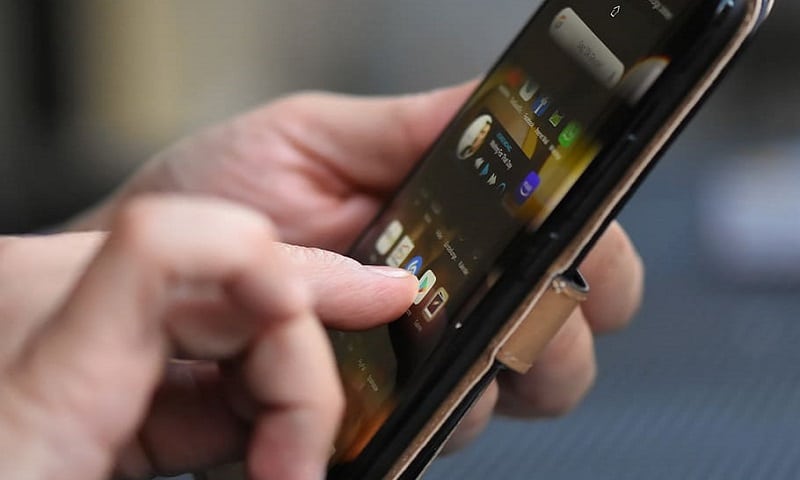What is the Future of Mobile Internet?

TechsPlace | Can you imagine your life without your smartphone, or can you even last a day without checking your mobile phone?
It is evident that mobile technology has made a deep penetration in our lives and has changed how we surf and connect to the internet. People are now starting to ditch their desktop and laptops for mobile phones, and some have been fully dependent on their smartphones for work and business purposes.
To date, there are about 3.5 billion smartphone users in the world, and it is expected to grow in the coming years. Some of the mobile phone statistics, which shows how much we have made smartphones significant in our lives:
- 40% of transaction online is done with a mobile device
- In the United States, 63% of visits made to Google were using mobile devices
- 204 billion mobile application was downloaded in 2019
- In 2019, 56% of the website traffic worldwide were made on mobile devices
- Mobile devices comprise 67% of internet users worldwide while desktop computers are only at 33%
- There 7.9 billion mobile broadband subscription worldwide in 2018
If we would go back two decades ago, we can see how much smartphones have evolved. Today, more than just a mere tool for easy communication, smartphones serve a lot of purposes. One of the most important features of a smartphone is its ability to connect and surf the internet.
What is the Mobile Internet?
Modern-day smartphones are enabled to provide itself its mobile data while being connected to cellular providers. It gives you access to your favorite online applications, your online messaging platforms like Skype, Viber, or FB Messenger, as well as let you connect to your favorite social communities like Facebook, Twitter, TikTok, and Instagram without having to connect to any local connection.
As we welcome a new decade as the year started, it is clear that there is a surge of internet use on mobile devices across the globe, but what can we expect in the future for mobile internet?
The Future of Mobile Internet
The Future – 5G Technology
As the year 2020 enters, we have heard a lot about the newest kid on the block when it comes to mobile data interface – 5G or 5th generation mobile networks. Its precedent, 3G, and 4G have become an immense driver to shape the way people use mobile data.
5G is the new global wireless standard that virtually connects people and machines, devices, and objects. Compared to other internet standards, it is expected to deliver higher multi – Gbps peak data speeds, relatively low latency, greater network capacity, added availability, and a more notable uniform user experience for users.
5G technology is quite new and still making its way to places around the world. This means that even if you have already purchased a new shiny 5G phone if your place is still not 5G capable, you will still not feel the new air interface very much. Currently, 5G networks are often limited to big cities as it requires a lot of work in placing towers to provide a strong signal for everyone. As 5G operates in high frequencies, it cannot travel far from a tower, so even a small town will require to have many of these towers, which may take a while to build.
The Future – The Competition on Speed
Mobile carriers have a lot on their plate these coming years, and all will scramble to make their way on top and gain the trust of smartphone users. The increase in competition for mobile internet providers will be tough, and almost all will leverage 5G services. Those who will be left offering 4G will have a hard time catching up.
As this race accelerates on for mobile carriers throughout the globe, we can expect higher traffic in 5G offerings, expanded coverage, and more offerings of 5G-compatible devices.
The Future – Digital Rise
Mobile devices will continue to dominate this 2020 and more so in the coming years. While the year 2019 saw a decline in mobile phone sales, it is expected to rise again this year. As the increase will become more evident in the coming years, it will become clear that mobile phones and smartphones are already necessities and an important medium.
With the influx of smartphone users in the future, it is expected that there would be an increase in mobile internet users worldwide. With the innovation of the fastest internet offering like the 5G network, cable internet will finally see some competition. It is expected that this network will be roughly the same as the cabled internet connection. As more 5G infrastructure will be up this year, we can see more and more people ditch their desktop and laptops powered by cabled connections and move to mobile devices powered by mobile data.
Impact on Businesses
While many entrepreneurs and businesses are still reluctant to make a switch to the 5G network, it is expected that the greatest impact of this innovation will be felt through the business industry.
The offerings of low latency and incredible speed will effectively revolutionize business productions like on factory floors. It can incorporate ultrafast connectivity in robot machines that can increase productivity.
As small and mid-size enterprise (SME) continues to leverage on mobile devices and adopt mobility solutions for their operation and management functions, the availability of 5G network and the offerings it can provide can help these operational and managerial work run seamlessly, effectively and efficiently. It will not only make small businesses productive but also help them become leaders in their respective industries.
Conclusion
As the year progress, technology has also continued to evolve. It has clearly impacted our lives and the way we communicate and connect with our family and friends.
The innovation of many technological advancements will continue as technology dramatically changes the landscape of how we deal with our modern lives. Mobile devices, mobile internet, and its premises will continue to rise, and more opportunities will be created to deliver services to the world’s entire population effectively.
Ramon has been writing about technology trends, entertainment, and gaming ever since he left the busy world of corporate HR Tech behind. He currently writes about software and user experiences for Softvire Australia -the leading software e-Commerce company in Australia and Softvire New Zealand. In his spare time, Ramon writes science fiction, collects little yellow men and plastic spaceships.





